
AB: How do you and your peers meet? I understand you’re living in dangerous situations, so how do you organize meetings? Where do you meet?
FM: In Uganda, the best way to meet a partner or pick a gay person is from classified ads on the internet, at parties or through friends. It is very dangerous in my country to be gay. The Law this is the most prohibitive challenge that we face in carrying out our activities. It should be noted that Section 140 of the Penal Code criminalizes “carnal knowledge against the order of nature” with maximum penalty of life imprisonment. Also, Section 141 prohibits “attempts at Carnal knowledge” with maximum penalty of 7 years’ imprisonment. Section 143, punishes acts of procurement of or attempts to procure acts of gross indecency” between men in public or private with up to 5 years imprisonment.
If couples want to live together in the same house then they have choose a very discreet place to live, or stay in gay or friendly neighborhood, or simply disguise as brothers or friends living together and never mention to any one what they do behind closed doors, other wise one can go to prison or face hate crimes.
AB: And your meetings?
FM: Our meetings are always in undisclosed places and we are very careful who we invite. We meet in safe places like our homes. Some of our meetings are gay friendly restaurants and pubs, but so far there are three such places that am aware of in Uganda. Of course, the government and security do not know these places, even when the owners are asked, they deny.
AB: Do you consider Uganda a democracy?
FM: The fact that we vote and majority rules, yes Uganda is democratic. But I don’t know. Until sexual minorities are liberated, I will never consider Uganda a democratic state. These loopholes will always leave some one questioning the democracy of a country.
AB: In your opinion, why do your countrymen continue to cling to colonial ideals of sexuality?
FM: I think people are just refusing to face the facts. They cling to old tradition colonial ideals which suit them, but when it comes to some thing that doesn’t suite them, they fight the government to amend the laws. For instance, look at the land laws in Africa that were left by colonialists – most of them have been amended, some even repelled and long forgotten. But just because we are a minority, they are suppressing us the more and still
burying us in the sand.
The other thing is, these laws are in line with religion and some how culture. But me? I think it’s ignorance. Africans are not informed. No one has given them the better version of the laws: new laws according to social, political and economic changes. They don’t even know what and why these laws were put in place. That’s is why despite of all that goes on in Uganda, we are coming out as strong campaigners to teach people in Africa their rights.
AB: Are you a religious person? Can you describe your relationship with the church?
FM: Like I said before, I am a religious person. I have tried to study the Bible and homosexuality and I find a lot of contradictions there. I find a lot of reason not to believe the Bible, but I can’t simply wake up in the morning and say, “There is no God, Bible or the Church”. No, I cant. Maybe my fear goes to religious leaders who have taught us that some people are bad evil or sinful just because of their sexual orientation. I don’t go to church as often as I used to. When I can I pray, prayer still works for me – always has. When the going gets tough, I turn to God. I don’t mind if He is there or not, but at some points I want to talk to some one, and at some points I want to believe in something, so I turn to God.
Don't forget to share:
Help make sure LGBTQ+ stories are being told...
We can't rely on mainstream media to tell our stories. That's why we don't lock Queerty articles behind a paywall. Will you support our mission with a contribution today?
Cancel anytime · Proudly LGBTQ+ owned and operated
 Uganda’s gay activists came out loud and proud last year. Their government and countrymen, however, would rather stick them in the closet. We recently chatted with Sexual Minorities Uganda leader Frank Mugisha to learn more about growing up gay in one of Africa’s most homophobic nations. It’s not as blakc and white as one may think.
Andrew Belonsky: Can you describe coming out to your family?
Frank Mugisha: I did not come out to my whole family. My Dad died when I was age 7, so me and my brother were raised by my mother. I did not come out and tell my mom that am gay for a long time. I did not know how she would react, because I had never heard her mention anything against or in favor of LGBTI people. She never mentioned any thing at all, even when the topic came up on TV or on radio. I went single sex boarding school and unlike other parents who warn their children about homosexual acts in school, my mother never mentioned anything about gay people.
At age 17 I came out to my younger brother, because he asked a lot of questions and some how found out that I am gay. He asked me and I told him the truth. He was age 15 then. He did not mention it again until he was 18, then he made it a big deal and thought it was funny. He made fun of me, but with humor. For instance, when we would meet a cute boy with a nice ass, he would tease me and say, “Does he turn you on?” He still does, but we are very close and he supports me a lot.
AB: How did you get involved in activism?
FM: I developed the idea of starting a gay organization after fully accepting myself as a homosexual man. The idea of starting this LGBTI organization was given momentum in 2004, when I found out that there was an organization called Icebreakers Manchester. I contacted one of its volunteers – David Armstrong – and he gave me the moral support and courage to carry on with the idea.
That’s when my mother came face to face with my sexual orientation. I told her I was gay and this is what I wanted to do. At first she did not object, nor did she support me. A few months after realizing how determined I was to carry on with activism, she tried to talk me out of it, but I said that I wanted to go on. I had only one year left to finalize my bachelor’s degree and I was free do as I please after my studies. I graduated in 2005, with Second Class Upper Honors Degree and that’s when mom stopped the hassle about my activism.
I also started to come out to my friends. I had tried earlier, but I lost almost all my friends who I had told that I was gay. By the way, most of my relatives don’t talk to my family because of me.
Uganda’s gay activists came out loud and proud last year. Their government and countrymen, however, would rather stick them in the closet. We recently chatted with Sexual Minorities Uganda leader Frank Mugisha to learn more about growing up gay in one of Africa’s most homophobic nations. It’s not as blakc and white as one may think.
Andrew Belonsky: Can you describe coming out to your family?
Frank Mugisha: I did not come out to my whole family. My Dad died when I was age 7, so me and my brother were raised by my mother. I did not come out and tell my mom that am gay for a long time. I did not know how she would react, because I had never heard her mention anything against or in favor of LGBTI people. She never mentioned any thing at all, even when the topic came up on TV or on radio. I went single sex boarding school and unlike other parents who warn their children about homosexual acts in school, my mother never mentioned anything about gay people.
At age 17 I came out to my younger brother, because he asked a lot of questions and some how found out that I am gay. He asked me and I told him the truth. He was age 15 then. He did not mention it again until he was 18, then he made it a big deal and thought it was funny. He made fun of me, but with humor. For instance, when we would meet a cute boy with a nice ass, he would tease me and say, “Does he turn you on?” He still does, but we are very close and he supports me a lot.
AB: How did you get involved in activism?
FM: I developed the idea of starting a gay organization after fully accepting myself as a homosexual man. The idea of starting this LGBTI organization was given momentum in 2004, when I found out that there was an organization called Icebreakers Manchester. I contacted one of its volunteers – David Armstrong – and he gave me the moral support and courage to carry on with the idea.
That’s when my mother came face to face with my sexual orientation. I told her I was gay and this is what I wanted to do. At first she did not object, nor did she support me. A few months after realizing how determined I was to carry on with activism, she tried to talk me out of it, but I said that I wanted to go on. I had only one year left to finalize my bachelor’s degree and I was free do as I please after my studies. I graduated in 2005, with Second Class Upper Honors Degree and that’s when mom stopped the hassle about my activism.
I also started to come out to my friends. I had tried earlier, but I lost almost all my friends who I had told that I was gay. By the way, most of my relatives don’t talk to my family because of me.
 AB: What did you learn – as a child – about gay people? What were you taught?
FM: I was raised a Catholic. My brother and I went to all boys school until college. At home I wasn’t taught any thing good or bad in regard to gay people, but at school I was taught how bad it was to be gay and how sick and sinful it was. My class mates and school mates had all the bad names for gay people or people who were rumored to be gay. At school there was no choice: if one was rumored to be gay, he was expelled immediately. I stayed very far away from any one who was rumored to be gay or any one who made advances on me, because I did not want to be suspended or face humiliation. I wanted to be close to some one who felt like me, but, it was a sin. I thought maybe it was true: I am abnormal…
I prayed to God so many times to take it away and heal me. I made bets with God as a child I asked Him in my solitude that if He takes it away I will double the times I go to church. I asked God for a sign, a dream, a vision to take it away, but I never received any… Even now there are days when ask my self and wish there was a pill I could take to change the way I feel. However much we fight for our rights, even if we get the rights, there are some people who will never understand, there are people who will see us different and continue to hate us.
AB: What did you learn – as a child – about gay people? What were you taught?
FM: I was raised a Catholic. My brother and I went to all boys school until college. At home I wasn’t taught any thing good or bad in regard to gay people, but at school I was taught how bad it was to be gay and how sick and sinful it was. My class mates and school mates had all the bad names for gay people or people who were rumored to be gay. At school there was no choice: if one was rumored to be gay, he was expelled immediately. I stayed very far away from any one who was rumored to be gay or any one who made advances on me, because I did not want to be suspended or face humiliation. I wanted to be close to some one who felt like me, but, it was a sin. I thought maybe it was true: I am abnormal…
I prayed to God so many times to take it away and heal me. I made bets with God as a child I asked Him in my solitude that if He takes it away I will double the times I go to church. I asked God for a sign, a dream, a vision to take it away, but I never received any… Even now there are days when ask my self and wish there was a pill I could take to change the way I feel. However much we fight for our rights, even if we get the rights, there are some people who will never understand, there are people who will see us different and continue to hate us.
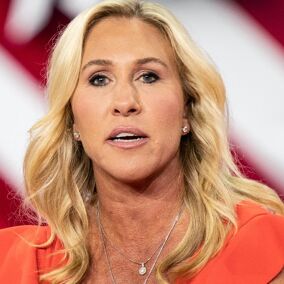
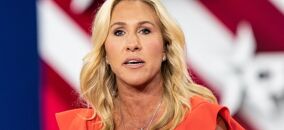
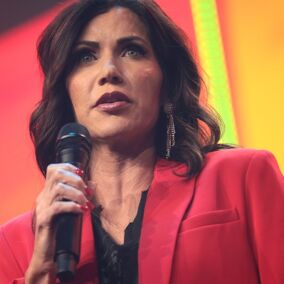
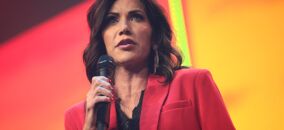
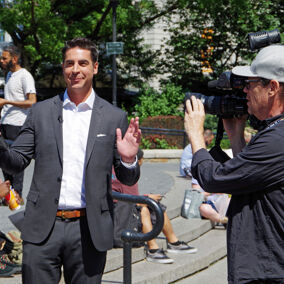
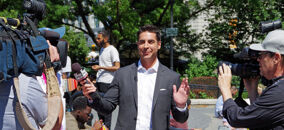
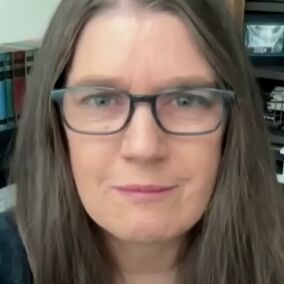
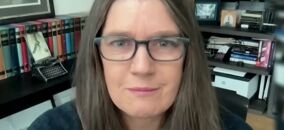
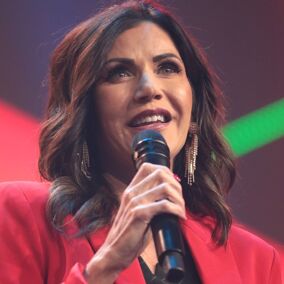
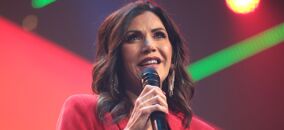
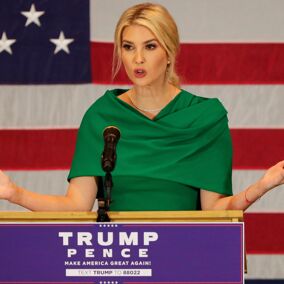
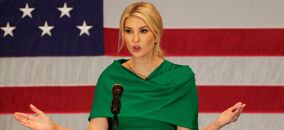
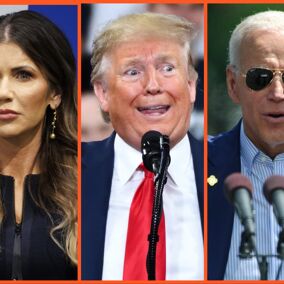

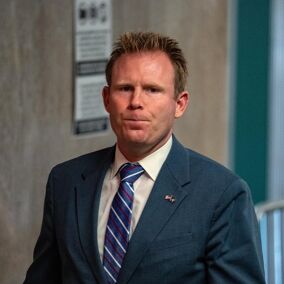
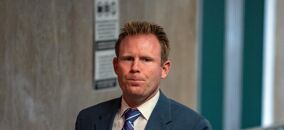
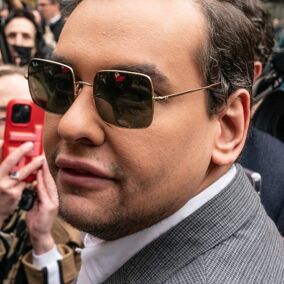
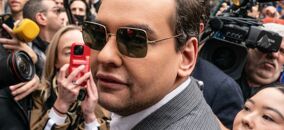
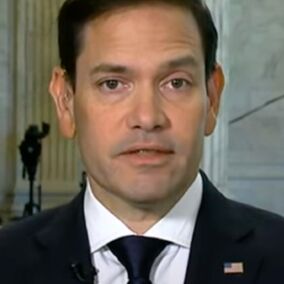
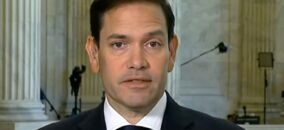
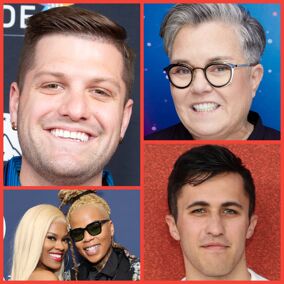
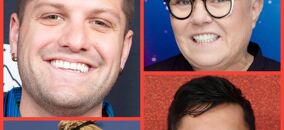
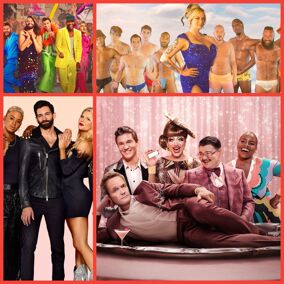
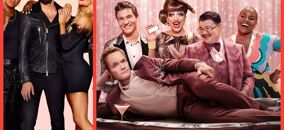
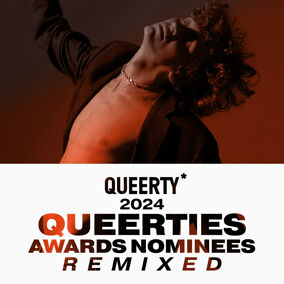
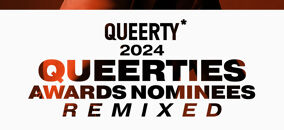
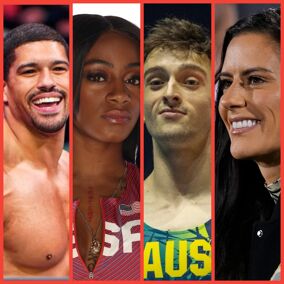

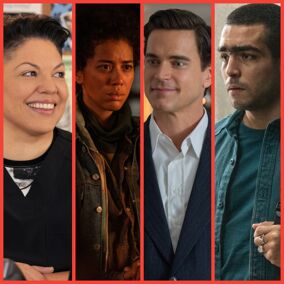
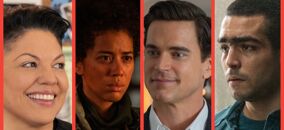
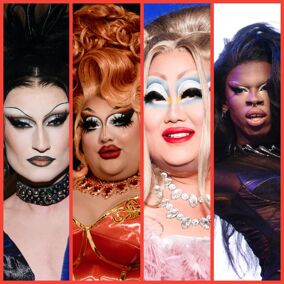
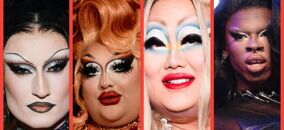
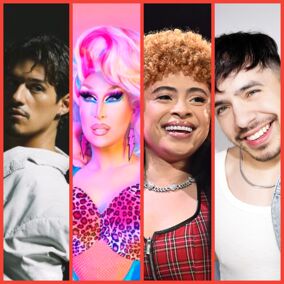
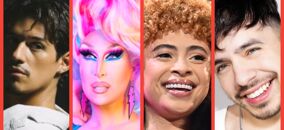
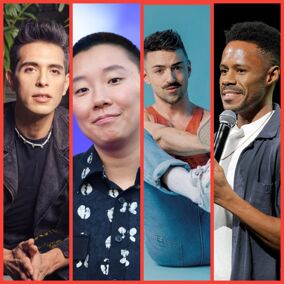
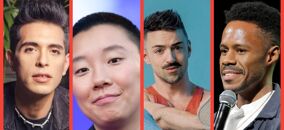
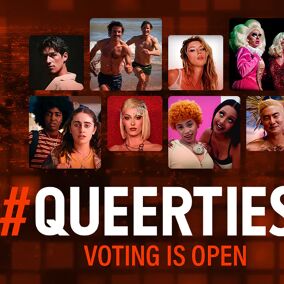
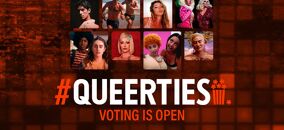
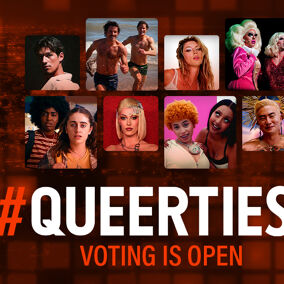
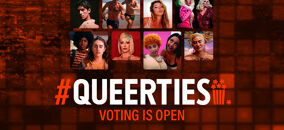
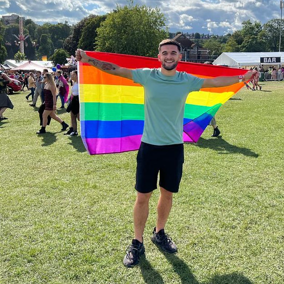
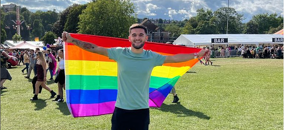
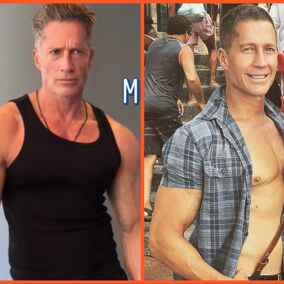
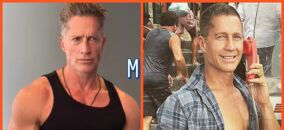
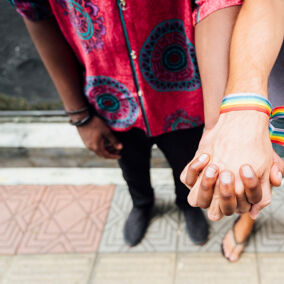
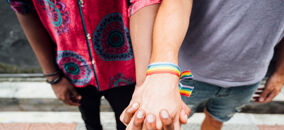


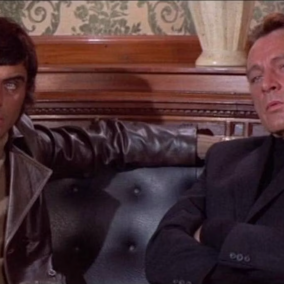
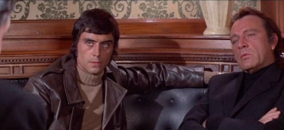
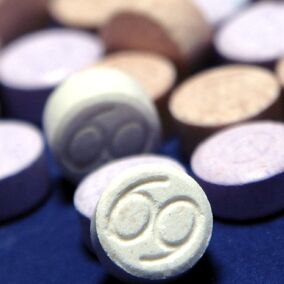

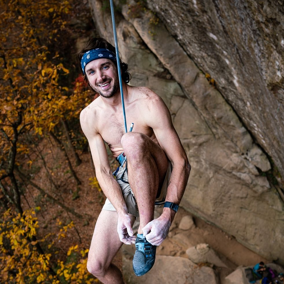
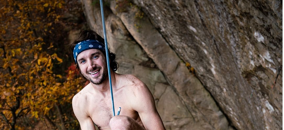


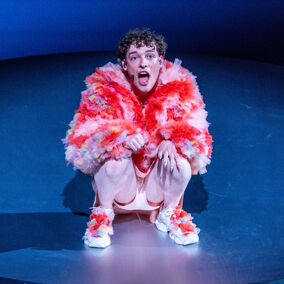
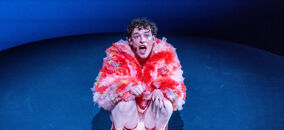
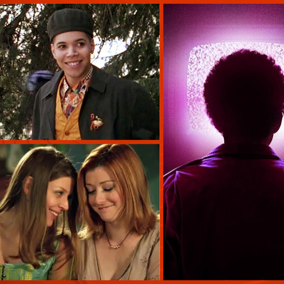
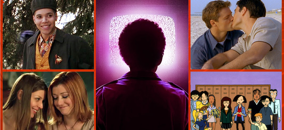
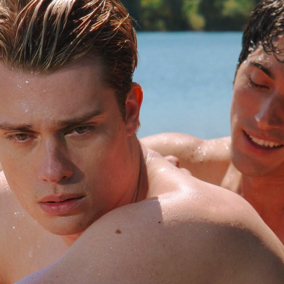
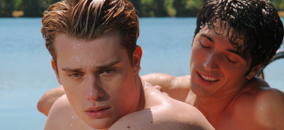
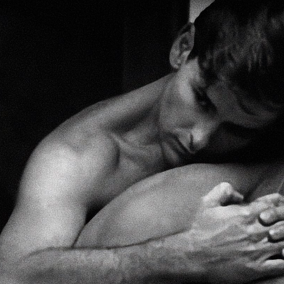
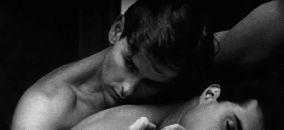
Paul Raposo
Excellent interview, Andrew. This is what we need more of; voices and stories from other parts of the world. The more people realize that homosexuality is not a western creation, the more people might realize that we exist worldwide and are more than a sexual act. Isn’t it odd and wonderful how coming out stories are so universal, yet so much the same?
seitan-on-a-stick
I have known many Africans living in America, even some who have slept with highly elected officials. Americans must know that Africa is where life began. Our same-gender loving brethren should know that once upon a time when Armstrong landed on the moon, he uttered the famous line “One small step for men, on big step for mankind.” Unfortunately, some Africans clutch onto colonial traditions of western religion but there is a beacon of light of truth about the bible called “What the Bible really says about Homosexuality” in which Mel White states the case of falsely created religious-based homophobia. Read for yourself at http://www.soulforce.org/article/homosexuality-bible-gay-christian
Excerpt from website based on book:
What the Bible Says – And Doesn’t Say – About Homosexuality
by Rev. Mel White, co-founder of Soulforce
LIKE YOU, I TAKE THE BIBLE SERIOUSLY!
Many good people build their case against homosexuality almost entirely on the Bible. These folks value Scripture, and are serious about seeking its guidance in their lives. Unfortunately, many of them have never really studied what the Bible does and doesn’t say about homosexuality.
We gay, lesbian, bisexual, and transgender Christians take the Bible seriously, too. Personally, I’ve spent more than 50 years reading, studying, memorizing, preaching, and teaching from the sacred texts. I earned my master’s and doctoral degrees at a conservative biblical seminary to better equip myself to “rightly divide the word of truth.” I learned Hebrew and Greek to gain a better understanding of the original words of the biblical texts. I studied the lives and times of the biblical authors to help me know what they were saying in their day so I could better apply it to my own.
I’m convinced the Bible has a powerful message for gay and lesbian Christians — as well as straight Christians. But it’s not the message of condemnation we so often hear.
I’m not expecting you to take my word for it, though. I ask only that you’d consider what my research has taught me about the passages used by some people to condemn God’s gay and lesbian children. Then decide for yourself…
MY FIRST PREMISE:
Most people have not carefully and prayerfully researched the biblical texts often used to condemn God’s lesbian, gay, bisexual, and transgender children.
As you may know, biblical ignorance is an epidemic in the United States. A recent study quoted by Dr. Peter Gomes in The Good Book found that 38 percent of Americans polled were certain the Old Testament was written a few years after Jesus’ death. Ten percent believed Joan of Arc was Noah’s wife. Many even thought the epistles were the wives of the apostles.
This same kind of biblical ignorance is all too present around the topic of homosexuality. Often people who love and trust God’s Word have never given careful and prayerful attention to what the Bible does or doesn’t say about homosexuality.
For example, many Christians don’t know that:
Jesus says nothing about same-sex behavior.
The Jewish prophets are silent about homosexuality.
Only six or seven of the Bible’s one million verses refer to same-sex behavior in any way — and none of these verses refer to homosexual orientation as it’s understood today.
Most people who are certain they know what the Bible says about homosexuality don’t know where the verses that reference same-sex behavior can be found. They haven’t read them, let alone studied them carefully. They don’t know the original meaning of the words in Hebrew or Greek. And they haven’t tried to understand the historical context in which those words were written. Yet the assumption that the Bible condemns homosexuality is passed down from generation to generation with very little personal study or research. The consequences of this misinformation are disastrous, not only for God’s gay and lesbian children, but for the entire church.”
We love our Ugandan brothers and sisters and wish you “Godspeed” in your enlightening and difficult work. You re-inspire us here in America to Fight for ALL.
seitan-on-a-stick
CORRECTION: Actual Quote from Nasa website:
109:24:48 Armstrong: That’s one small step for (a) man; one giant leap for mankind. (Long Pause)
yalesing
i agree the words following :”That’s one small step for (a) man; one giant leap for mankind. “i am a gay and my profile is on gaysinglehunt.com where i look for relationship
Addy
Frank that is so courageous , for a young man in a hostile country , bravo !! bravo !! we are with you all Ugandan brothers.
Muraad
Frank, SGC supports the work you are doing, and many thanks for doing it for all of us (Africans). It was not long ago when homosexuality was a criminal offence in most of European countries including UK, and that should be our source of hope and aspirations. One day we will be visible in Africa but to get there we need people like you!
So keep up the good work and stay safe
In the name of our FREEDOM
Muraad
Muraad
SGC, stands for Somali Gay Community for more info visit our website;
http://www.somaligaycommunity.org
Aad Dunnewind
I know Frank and his work in Uganda, have seen what he is doing there, seen the struggle to be taken serious and I admire him for that. Having hardly any money and still going strong fighting for his rights and those of millions others in Uganda and Africa. I really do hope there will be a lot of people in the world who will read this and the other articles Frank wrote and who will support him in further devellopment for the gays and lesbians in Uganda and not to forget the rest of Africa. Together, that is, Europe, USA and Africa, we can continue to fight, also for the rest of the world to get better and equal rights for everyone, including gays and lesbians. Although we have achieved some things here in Europe, we still have to fight for our rights so we know what it is to struggle and the results of that experience we want to share. Here in Europe at least we have some rights and possebilities that I and a lot of other gay- and lesbian people, want to share with the rest of the world. So Frank be sure I will continue to support you in any way that is possible and call others to do the same. Aad.
Nicholas
Frank thanks for the work you are doing for the African gays and lesbian,i know its a hard task you are taking but soon am joining you and we fight for our rights and freedom together.lets keep the gay spirit alive.
Keep up the good work.
male solomon
thanks very much Frank 4 that work u are doing to us.
bweya1712
thanx Frank. you are brave, i tried and now, i have no job, no family and no hope. But i still know am normal like the rest of the straight people. thanx